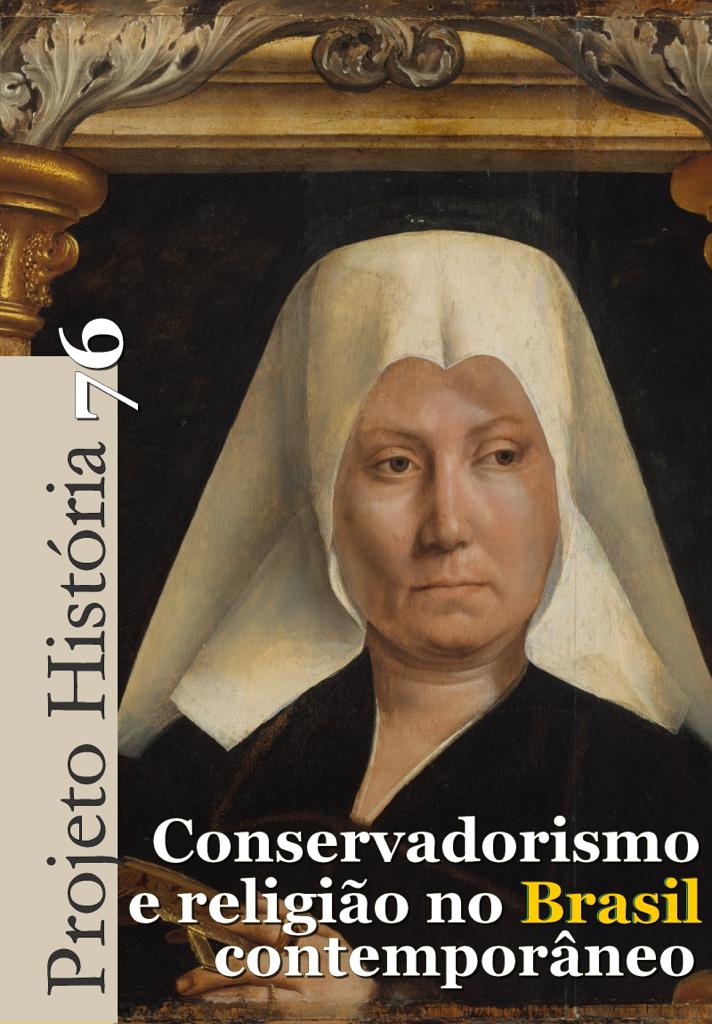Monoteísmo político
A distinção mosaica e a oclocracia brasileira
DOI:
https://doi.org/10.23925/2176-2767.2023v76p89-117Palavras-chave:
Bolsonarismo, monoideologias, violência política, intolerânciaResumo
O monoteísmo foi utilizado em diferentes momentos históricos como ferramenta para construção de governos autoritários e violentos. O conceito de “distinção mosaica”, que Jan Assmann utiliza para se referir ao monoteísmo, se torna uma boa chave de leitura para esses fenômenos. Sendo assim, o objetivo desse artigo é, a partir de uma análise exploratória, comparar diferentes momentos históricos em que a relação monoteísmo e Estado se fizeram presente para tentar compreender os elementos significativos dessa conexão. Ao fim, percebemos que um Estado oclocrático, um modo autoritário de governo que coloca a ignorância das massas no poder, possui estrita relação como a construção violenta do monoteísmo, estimulando a formação de monoideologias exclusivistas e intolerantes.
Referências
ALVES, Rubem. Religião e Repressão. São Paulo: Edições Loyola, 2005.
ANGELI, Sebastiano. The Threat of Ochlocracy and Democracy’s Ace. The International Scholar, 2022. Disponível em:< https://www.theintlscholar.com/periodical/commentary-threat-ochlocracy-and-democracy-ace>. Acesso em: 25 de julho de 2022.
ASSMANN, Jan. Egypt, Israel, and the Rise of Monotheism. Madison: University of Wisconsin Press, 2008.
ASSMANN, Jan. The Price of Monotheism. Stanford: Stanford University Press, 2010.
ECHANOVE, Juan. Ecos del desierto: El origen histórico del monoteísmo. Quezon City: Central book supply. 2008
FINKELSTEIN, Israel; Silberman, Neil Asher. A Bíblia Não Tinha Razão. São Paulo: Ed. A Girafa, 2003.
FOLHA DE SÃO PAULO. Chanceler compara Bolsonaro a Jesus ao
chama-lo de ‘pedra angular’. 3 de maio de 2019. Disponível em:
<https://www1.folha.uol.com.br/mundo/2019/05/diplomaciaprecisa-ter-sangue-nas-veias-diz-chanceler-ernesto-araujo.shtml>. Acesso em: 18 out. 2021.
GALENO, Alex; TÁZIA, Ana; RILANE, Patrícia. O Homo delinques do Bolsonarismo: anocracia e contínuo mediático do ódio. Saiba Mais, 2022. Disponível em: < https://saibamais.jor.br/2022/10/o-homo-delinques-do-bolsonarismo-anocracia-e-continuo-mediatico-do-odio/>. Acesso em 20 de novembro de 2022.
HABERMAS, Jürgen. Direito e democracia: entre facticidade e validade. Trad. Flavio Beno Siebeneichler. Rio de Janeiro: Tempo Brasileiro, 1997.
HASANOVIĆ, Jasmin. Ochlocracy in the Practices of Civil Society: A Threat for Democracy? Studia Juridica et Politica Jaurinensis, p. 56-66, 2015.
HORSLEY, Richard A. Jesus e o império: o reino de Deus e a nova desordem mundial. São Paulo: Paulus, 2004.
KESSLER, Rainer. História Social do Antigo Israel. São Paulo: Paulinas, 2009.
KOSELLECK, Reinhart. Futuro passado: contribuição à semântica dos tempos históricos. Rio de Janeiro: Contraponto: Ed. PUC-Rio, 2006.
LEVITSKY, Steven; ZIBLATT, Daniel. Como as Democracias Morrem. Rio de Janeiro: Zahar 2018.
MALINA. Bruce J. El mundo del Nuevo Testamento Perspectivas desde la antropología cultural. Navarra: Ed. Verbo Divino, 1995.
MOUFFE, Chantal. Religião, democracia liberal e cidadania. (In) BURITY, Joanildo A.; MACHADO, Maria das Dores C (orgs.). Os votos de Deus: Evangélicos, política e eleições no Brasil. Recife: Fundação Joaquim Nabuco, Ed. Massangana, p. 15-27, 2006.
NAKANOSE, Shigeyuki. Para entender el libro del Deuteronomio ¿Una ley a favor de la vida?. Revista de Interpretação Bíblica Latino-Americana, Vol./No. 23, p. 168-184, 1996.
PASSOS, João Décio. Uma teocracia pentecostal? Considerações a partir da conjuntura política atual. HORIZONTE - Revista de Estudos de Teologia e Ciências da Religião, v. 18, n. 57, p. 1109, 31 dez. 2020.
PETERSON, Erik. El monoteísmo como problema político. trad. esp. da edição Kösel-Verlag, 1951, por A. Andreu, Madrid, Editorial Trotta, 1999.
PY, Fábio. Padre Paulo Ricardo: trajetória política digital recente do agente ultracatólico do cristofascismo brasileiro. Tempo e Argumento, Florianópolis, v. 13, n. 34, e0202, set./dez. 2021.
REIMER, Haroldo. Inefável e sem forma: estudos sobre o monoteísmo hebraico. São Leopoldo: Oikos; Goiânia: UCG, 2009.
RIBEIRO, Renato Janine. A democracia. São Paulo: Publifolha, 2001.
ROCHA, João Cezar de Castro. Guerra Cultural e Retórica do Ódio: Crônicas De Um Brasil Pós-Político). Editora Caminhos. Goiânia, 2021.
ROUSSO, Henry. A última catástrofe: a história, o presente e o contemporâneo. Trad. Fernando Coelho, Fabrício Coelho. Rio de Janeiro: FGV Editora, 2016
SATHLER; André; BRAGA, Ricardo de João; LAGO, Rudolfo. A oclocracia brasileira. Congresso em foco, 2021. Disponível em: < https://congressoemfoco.uol.com.br/area/governo/a-oclocracia-brasileira/>. Acesso em: 20 de julho de 2022.
SILVA, Gilvan Ventura da; MARVILA, M. De Laudibus Constantini: o discurso de Eusébio de Cesareia sobre a realeza. ES: Dimensões, 2006.
TEIXEIRA DA SILVA, Francisco Carlos. O Discurso de Ódio: análise comparada das linguagens dos extremismos. Revista nuestrAmérica, 7 (13): p. 45-64, 2019.
WELLINGTON, Borges. A oclocracia brasileira e a democracia funcional por um fio. Disparada, 2019. Disponível em: <https://disparada.com.br/oclocracia/>. Acesso em 20 de julho de 2022.
Downloads
Publicado
Como Citar
Edição
Seção
Licença
Copyright (c) 2023 Projeto História : Revista do Programa de Estudos Pós-Graduados de História

Este trabalho está licenciado sob uma licença Creative Commons Attribution 4.0 International License.

Este obra está licenciado com uma Licença Creative Commons Atribuição 4.0 Internacional.




